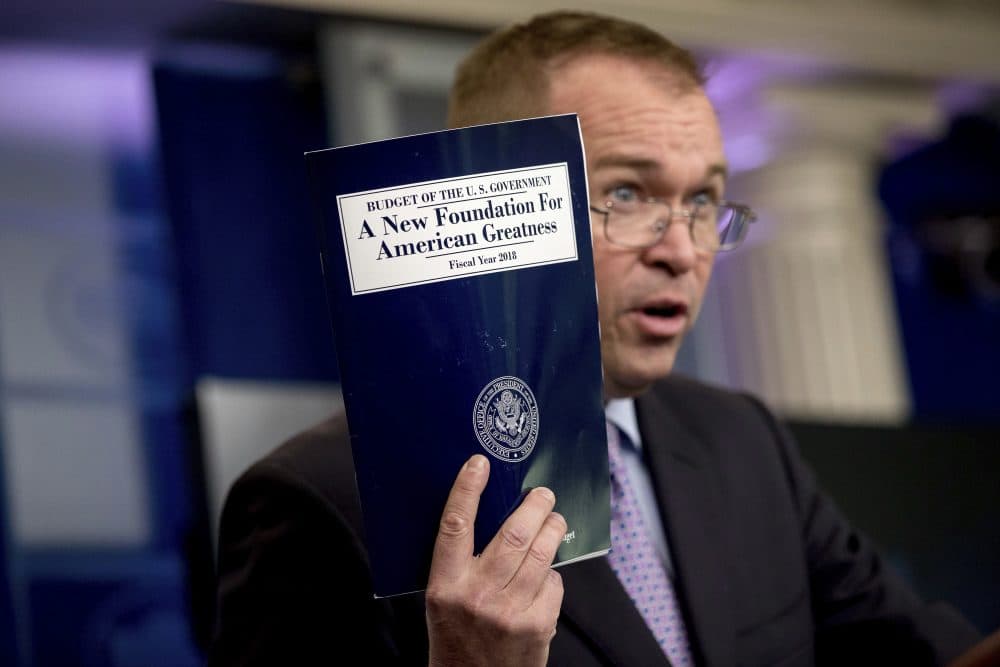Advertisement
States Prepare For 'Chaos' As Money Dries Up For Children's Health Insurance Program
Resume
Virginia is among several states warning families that children may soon lose their health care coverage under the Children's Health Insurance Program (CHIP).
Money has been running out for CHIP since Congress failed to reauthorize federal funding for the program when it expired in September.
Here & Now's Robin Young speaks with Linda Nablo, chief deputy director at Virginia's Department of Medical Assistance Services.
Interview Highlights
On waiting to notify families that their children's coverage is gone
"At this point, because we're hearing from Congress that there's a possibility Congress will use the continuing resolution to reauthorize CHIP, and that must be passed by Dec. 8, we are not sending the letter out on Dec. 1 as originally intended. Because the last thing we want to do is scare parents and then turn right around and have to tell them, 'Sorry, nevermind. Congress has finally acted and your coverage is safe.' It's terrible. At this point, the draft letter says, 'You may, your child may lose coverage, you know, we'll let you know as soon as we know.' "
On the impact of CHIP
"CHIP is, along with Medicaid, is credited with drastically reducing the uninsured rate among America's children. You know, 20 years ago, I think the uninsured rate among children was 14 or 15 percent. It's down now to less than 5 percent. There's also many studies that talk about, children on CHIP get their immunizations. It's required that they get dental care. There are many positive health outcomes from having coverage and being able to take your child to the doctor when you need to."
"The truth is a lot will end up uninsured. That's probably the majority of what will happen. But every family needs to kind of assess their situation and explore what might be options for them."
Linda Nablo
On bipartisan support and what's happening politically
"It's very disturbing. I don't think you can find a senator or representative who would say they don't support chip. They are caught in a very partisan struggle over how to pay for it. If they can't do this, I don't know how they can do anything."
On what CHIP recipients can do in the meantime
"Other choices are probably limited, but there are some things they would need to explore. If, for example, their income has dropped since they first applied for CHIP, they might qualify for Medicaid. So we need to re-evaluate that if they have if their child is very sick and they have accumulated, or will soon accumulate, once chip ends, very large medical bills, there's such a thing as a 'spend down,' because of medical bills, until you become eligible for Medicaid. So they need to be aware that that might be an option if their child is very sick. Yes, the marketplace. Go to the marketplace, find out what the costs would be. If Congress eventually reauthorizes this program, you may only need that coverage for a few months. You may go to your employer if your employer offers family coverage. Perhaps you can afford for at least a few months to put your child on that.
"The truth is a lot will end up uninsured. That's probably the majority of what will happen. But every family needs to kind of assess their situation and explore what might be options for them."
On if any states will be able find money to cover costs that CHIP normally would
"I will be amazed if any state, especially with this short notice — it's not just a question of money, which is significant. It's everybody keeps saying Congress will do this. So states are not prepared. If they had been prepared in preparing two years ago to know that CHIP would end and figure out what part of it, if any of it, could continue with state funds, you might see more of that. But at this point, states are in the middle of their fiscal years. In Virginia, the whole CHIP budget is about $323 million and the federal government pays 88 percent of that. So to expect the state to be able to just, you know, come up with over $250 billion with almost no warning to maintain coverage is pretty unrealistic. But all of that takes time and money to work out. And we don't have either at this point."
This article was originally published on November 28, 2017.
This segment aired on November 28, 2017.